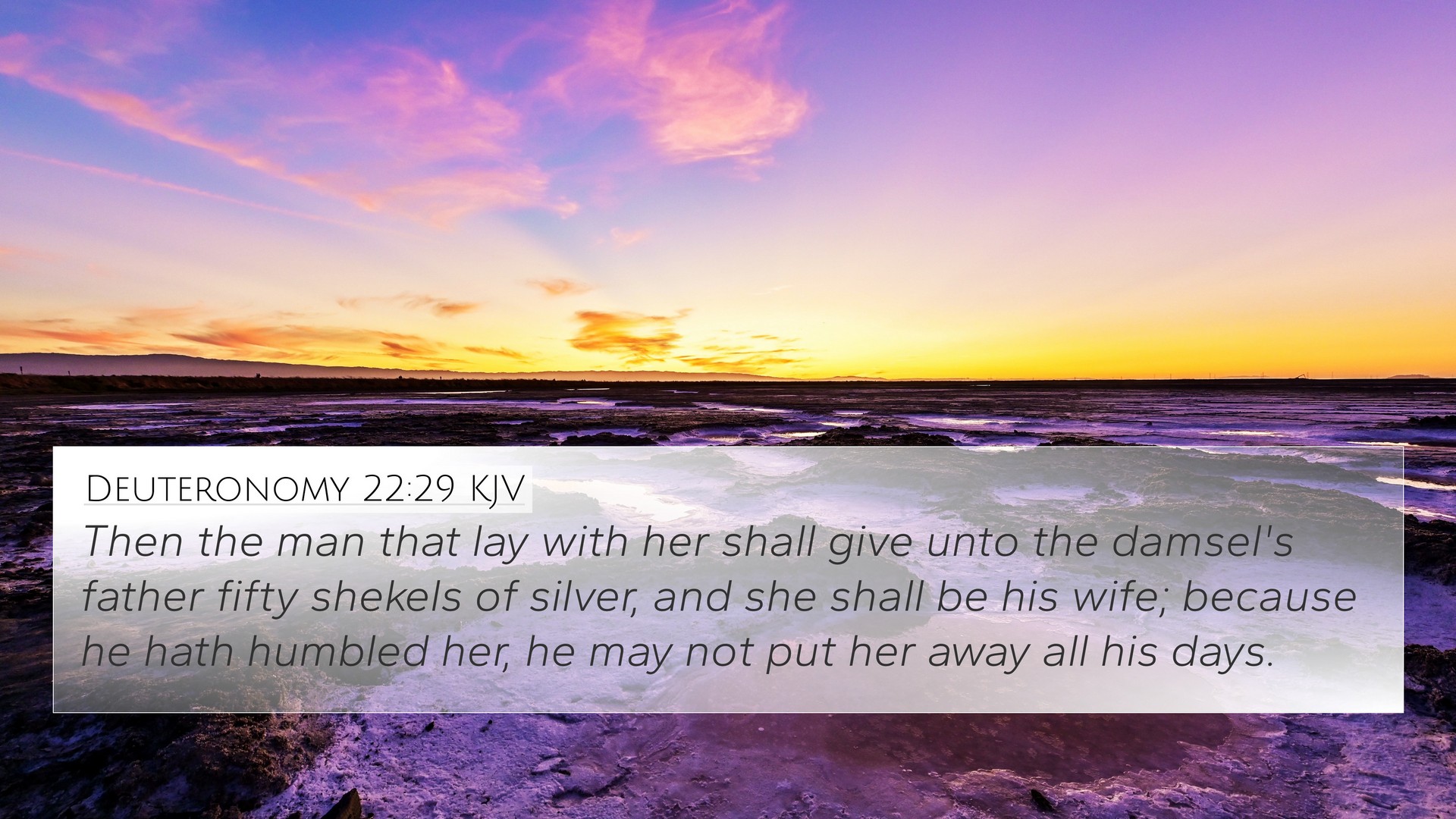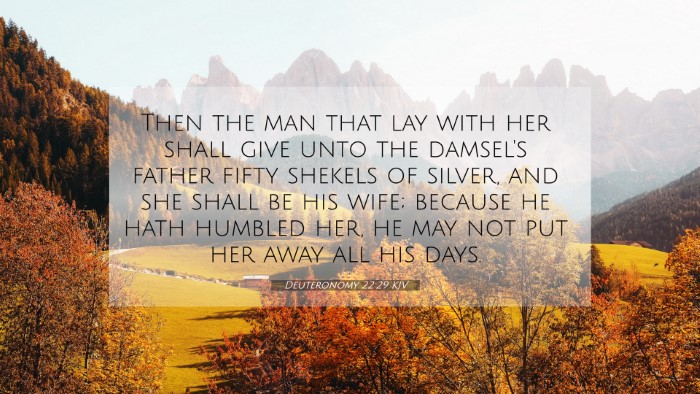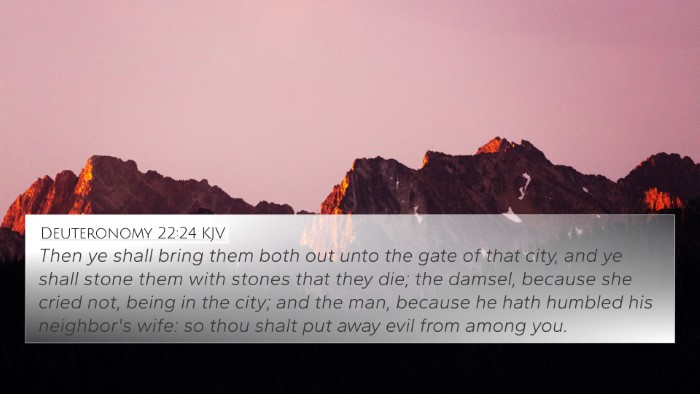Understanding Deuteronomy 22:29
Deuteronomy 22:29 states: "Then the man who lay with her shall give to the girl's father fifty shekels of silver, and she shall become his wife, because he has humbled her; he may not divorce her all his days." This verse is located within a section that outlines various laws and regulations given to the Israelites. Understanding its implications requires examining its cultural context, the legal stipulations, and its theological significance.
Context and Cultural Background
Cultural Relevance: In ancient Israelite society, marriage customs and women's roles were significantly different than today. This law serves to protect the rights of a woman who has been wronged, ensuring that she is provided for.
Legal Implications: The stipulation of a monetary payment to the father signifies a form of restitution and recognizes the value of the woman within her family's honor. Marriage was often seen as a covenant, and once violated, the man is bound to the woman as his wife, emphasizing responsibility over the consequences of their actions.
Comparative Analysis with Other Scriptures
To fully grasp the meaning of Deuteronomy 22:29, it is beneficial to cross-reference it with similar verses in both the Old and New Testaments:
- Exodus 22:16-17: States that if a man seduces a virgin who is not pledged to be married, he must pay her father the bride price and marry her.
- Genesis 34:12: Shechem's desire to marry Dinah after defiling her speaks to the cultural repercussions similar to those found in this law.
- 1 Timothy 5:14: Paul discusses the importance of marriage in maintaining purity and societal order, connecting to the protection intended in Deuteronomy.
- Matthew 19:9: Jesus' teachings on divorce further illuminate the sanctity of marriage and the serious implications of marital vows.
- Leviticus 18:22: Establishes laws surrounding sexual conduct, which ties back to the covenantal perspective of relationships.
- Isaiah 1:17: Encourages doing good, which correlates with the protective aspect of the laws outlined in Deuteronomy.
- Romans 13:10: Speaks about love fulfilling the law, reiterating the concept of responsibility and care for others.
Interpretative Insights from Commentaries
Matthew Henry: He emphasizes that this verse represents a specific provision meant to ensure that the woman is not left vulnerable after being wronged. Marriage is presented not just as a contractual obligation but as a commitment deeply rooted in honor and respect.
Albert Barnes: Barnes provides a broader interpretation that links this law with God’s perspective on relationships, underscoring the importance of mutual respect and the long-term ramifications of one's actions in the community.
Adam Clarke: Clarke notes the importance of the father receiving compensation, reinforcing the value of the family in this context. He also discusses the theological implications related to honor, shame, and the responsibilities of men towards women.
Theological Significance
This verse underlines the moral obligations that individuals have towards one another, especially in the context of sexuality and relationships. The hermeneutical approach to this verse requires a recognition of how laws reflect God's intention for human interaction. There are several themes that arise:
- Protection of the Vulnerable: The law seeks to offer security for women who might be exploited.
- Marital Commitment: Marriage is framed as a lifelong commitment, highlighting the seriousness with which God views sexual morality.
- Honoring Family: The need to compensate the father suggests a cultural valuation of family structures and responsibilities.
Application in Modern Context
Although the cultural practices of ancient Israel differ greatly from modern parallels, the underlying principles of accountability, commitment, and respect for individuals’ dignity remain relevant. This verse can provoke discussions about contemporary views on marriage, consent, and familial responsibilities.
Conclusion
Deuteronomy 22:29 serves as a significant touchpoint for discussions on marriage, ethics, and societal norms both in a historical context and for modern applications. Its insights highlight the importance of understanding scripture within a framework of love and mutual respect, resonating with many contemporary issues regarding relationships and moral conduct.
Additional Resources for Cross-Referencing
For individuals interested in deeper studies related to this topic, the following tools and methods can assist in exploring the connections between Bible verses:
- Bible Concordance: A valuable resource for locating verses and understanding their connections.
- Bible Cross-Reference Guide: Guides that offer thematic and illustrative crossover between scriptures.
- Cross-Reference Bible Study: Methods that allow readers to dive into comparative studies.





